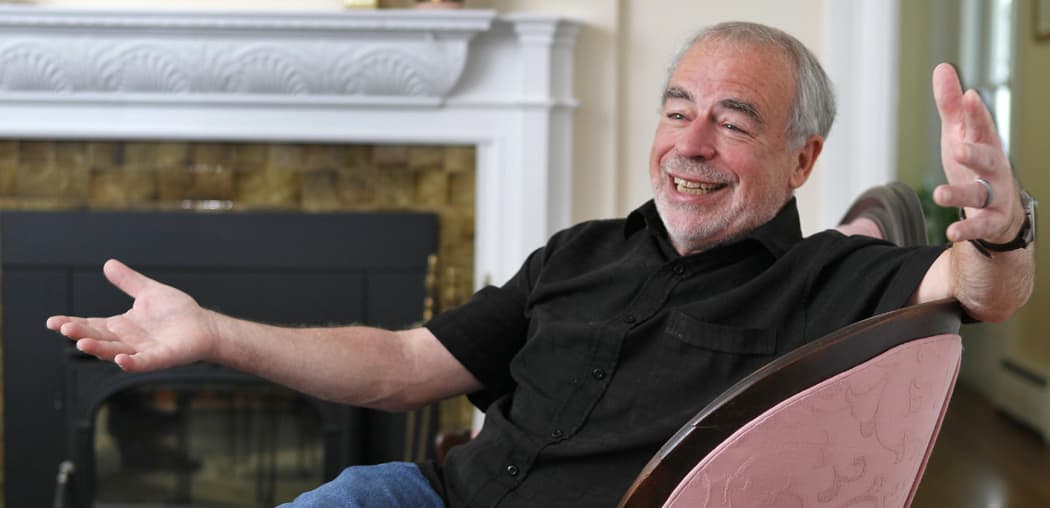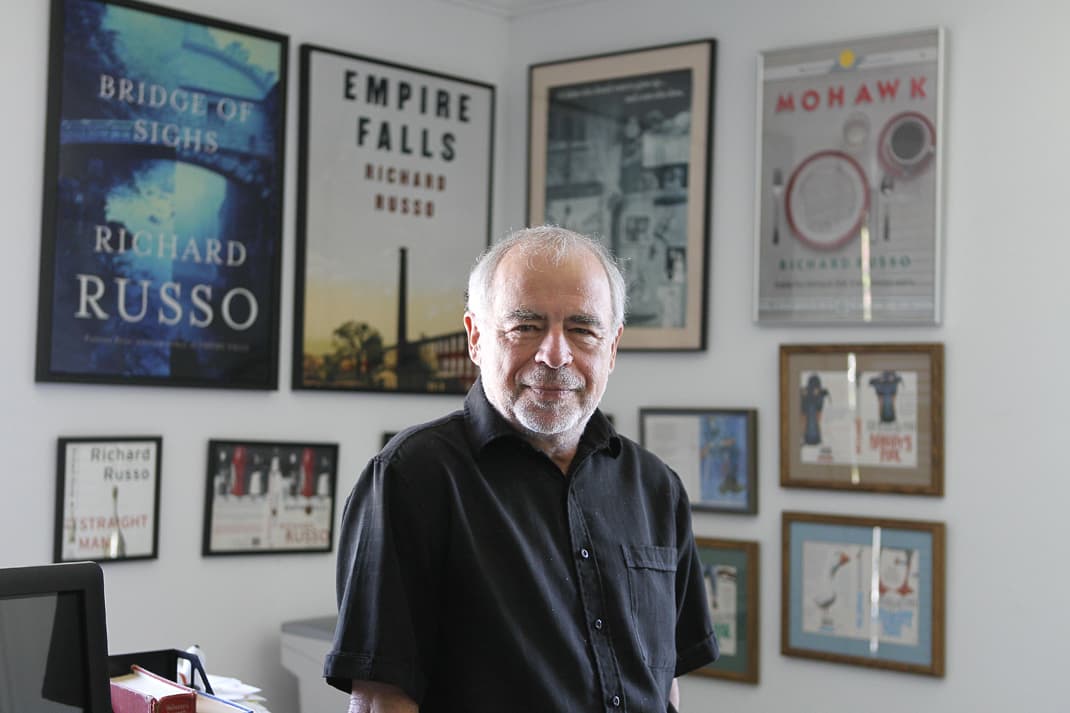Advertisement
Richard Russo Returns To Familiar Territory In Fine Form With 'Everybody's Fool'

When you reach the end of a Richard Russo novel, you may need a few moments to acknowledge that it really is time to leave the town, the intricate world, he has created for you. Russo — author of novels, short stories, screenplays — again and again shows himself to be a master at evoking the bruising heartaches and not-trivial triumphs of small-town Americans, especially those living in the struggling towns where manufacturing’s heyday is long past.
Published in 1993 and set in the 1980s, “Nobody’s Fool,” Russo's first book about the (fictional) town of North Bath, stands today as a great American novel. Progressing through a week or so of apparently mundane events, it practically overflows with memorable characters and insights both sympathetic and hard-won. Douglas Raymer, the blundering police officer endlessly pranked by Donald “Sully” Sullivan in “Nobody’s Fool,” is the focal point for this sequel, “Everybody’s Fool.”

It’s now the late 1990s, and Raymer is North Bath’s chief of police. He presides over a town that’s undergone few changes in the last decade, and is mostly continuing its slow slide. There are sometimes sightings of the new “cellular telephones,” but those are carried by tourists grabbing a quick meal on their way to a more scenic destination. Neighboring Schuyler Springs persists in being everything North Bath is not, with its “vibrant local economy, an educated citizenry … an NPR affiliate radio station.”
To make the contrast even more odious, North Bath has acquired what the regional newspapers have deemed “the Great Bath Stench” — in hot weather a “thick, putrid odor” permeates the town. It may come from the wetlands near the cemetery, or maybe from the old mill Carl Roebuck is renovating. Carl, having learned nothing from past business failures, is still doing construction projects on the cheap, although he’s much less the womanizer he was a decade ago; age and a pesky prostate have thrown him off his game.
Alas, Raymer’s new role in town has given him neither confidence nor real power. He feels more clerk than cop, and he’s a tight bundle of anxiety and regret. His wife, Becka, has died, in an accident at once horrible and comic, on the very day she was leaving him for another man. She had carefully left a goodbye letter, but had carelessly left a garage remote — not theirs. Since her death, Raymer has been driving all around town, aiming the remote at garage doors in a desperate quest to learn the identity of his wife’s lover.
Richard Russo will be on Radio Boston at 3 p.m. Wednesday, May 4, and will be appearing at Brookline Booksmith in Brookline the same day and at Odyssey Bookshop in South Hadley on Thursday, May 5.
Moving a lesser personality into the narrative spotlight is a risk, especially when that light had previously shone so well on Sully, one of the most memorable characters in modern fiction. Now 70, Sully is battling more medical issues and has “reluctantly come to suspect that misbehavior [is] a younger man’s sport.” But he still effortlessly commands whatever room he’s in.
Raymer does not. But then, finding his true voice has always been just out of his reach. Miss Beryl Peoples, North Bath’s legendary teacher, used to return Raymer’s writing assignments to him with probing questions like “What are you writing ABOUT?” and “Who are you?”
In “Everybody’s Fool,” Raymer’s individual story is aided — buffeted about, actually — by a bevy of extreme events — including an escaped cobra, an other-worldly thunderstorm, an exploding building — that all happen in just about two days during a very hot summer.
In “Nobody’s Fool,” characters made choices within the constricted spheres of their family and town, and the reasoning behind each choice drove the book in powerful ways. In “Everybody’s Fool,” there’s an additional, discouraging, layer: the sense that the universe occasionally gets quite out of balance, and most people (in North Bath, anyway) are just cosmic chew toys. Characters view the world as a matrix of luck, mostly bad. Even Sully, whose very lucky winnings from off-track betting have finally made him financially worry-free for the first time in his life, cannot easily enjoy his more secure circumstances. It seems that as his fortunes have risen, those of his good friends have unraveled.
Given the contraction and expansion of the events befalling North Bath, chapters of “Everybody’s Fool” come in varying sizes, each feeling the right length for its subject, with titles that would also nicely fit essays or short stories, like “Exit Strategies,” “A Sundering” and “Secrets.” Amid the near-chaos, there are many wry oh-by-the-way observations, as when Ruth, hardworking owner of Hattie’s Diner, muses that marriage was exactly the spark for men to take off their pants as soon as they walked in the door. To watch TV.

Though it’s a sequel, “Everybody’s Fool” stands strong on its own as a novel. If this is your first time meeting Rub or Jocko or Peter or the others hanging out at the White Horse Tavern, Russo will fill you in with just enough detail, comfortable as a conversation on a back porch in the evening, sharing large ideas with finely chosen, deceptively plainspoken words.
Of course, reading the first book can’t hurt. As Rub, a man of many unanswered wishes, reflects, “Maybe … there were some things in this world you just needed, against all reason.”